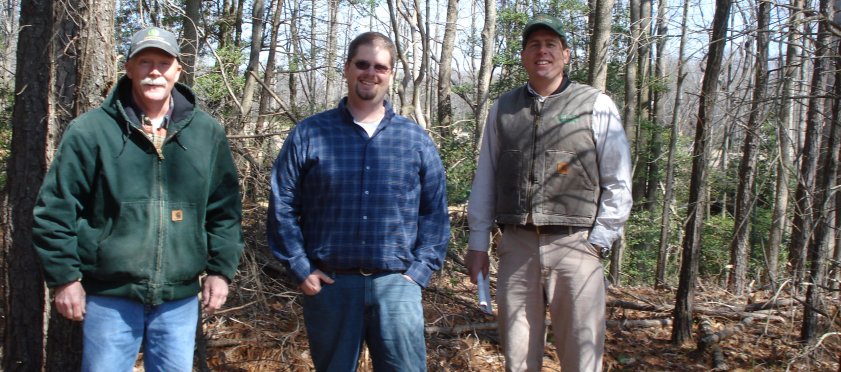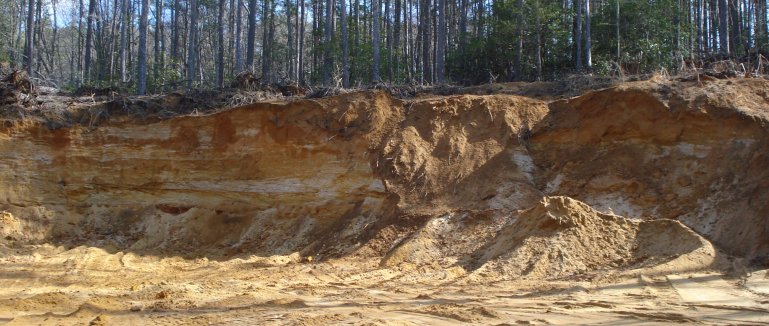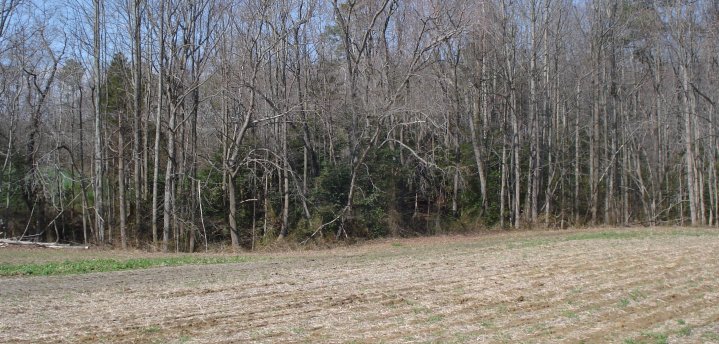Below is the draft of my article on the tree farmer of the year.

Monte & Peggy Swann cultivate 1650 acres of rolling farmland in Northumberland County on Virginia’s Northern Neck. Although most of their income comes from grain production, they manage more than 240 acres devoted to forestry and well managed cove forests interspersed among grain producing fields protect watercourses, prevent excess nutrients from entering tributary systems and reduce loss of highly erodible soil.
The Swann forest lands have been enrolled in the American Tree Farm System since 1957, making it one of the older continuous tree farms in Virginia, But the Swann family didn’t start conservation only fifty years ago. They have been practicing sustainable forestry for almost a century before that they were officially certified as a tree farm.
The home farm has been in the Swann family for almost 150 years and generations of Swann’s have not only kept the land productive but also enhanced the productive capacity of the farms nutrients and soils. Monte Swann farms land across from forests that once supported Peggy Swann’s family. Peggy’s father ran a local saw mill operation. Some of the timber he cut, especially rougher cuts from the poplar, hickory and gum, were made into pallets and fruit boxes for National Fruit Products.
So the Swanns are part of the local fabric of society and this generation of Swanns is as committed to keeping the land sustainable in the generations to come. The Swann farm is an outstanding example of multiple productive use of the land, which includes timber production, grain farming, scenic management, wildlife habitat improvement and personal recreational use.
The topsoils on the Swann farms are a rich mix of loams and clays, but some of the same characteristics that make them so productive also make them fragile and easily erodible.

Monte Swann practices no-till agriculture, which doesn’t tear up the soil and leaves the soil intact. It also minimizes the need for pesticides and herbicides, while holding more sequestered carbon and nutrients in the soil. No-till systems are also beneficial for water resources. They have four to eight times greater water infiltration rates than the tilled fields next door and they hold the soils a lot better, something of crucial importance for the loose soils of the Northern Neck of Virginia. If all this was not enough, no-till leaves year-round cover and crop residue on the fields that hold the soil and provide off-season habitat for wildlife. Many experts believe no till systems will help bring abundant quail back to the Virginia countryside. Monte Swann goes one better as wildlife habitat by creating soft edges between his fields and forests and planting quail friendly plants such as Lespedeza.

The Northern Neck was one of the first areas of Virginia to be settled after the founding of Jamestown. George Washington, James Madison, James Monroe and Robert E. Lee were all born here. But only recently has the region come under intense development pressure. Its superb and beautiful natural location, bounded by the Rappahannock and Potomac rivers and Chesapeake Bay, means that people attracted to waterfront property love the Northern Neck and its proximity to the burgeoning Washington Metro area ensures that the attractions do not go unnoticed. As neighbors sell to developers and new subdivisions sprout like mushrooms around him, maintaining his own land in its environmentally and economically sustainable condition becomes more of a challenge for Monte Swann.
Mr. Swann understands that his land is part of the greater whole that is the Northern Neck. His land provides indispensable ecological services. The water that soaks into the soil or runs off the Swann land flows eventually into the Potomac River and then into the Chesapeake Bay. Long-established stream management zones have been protecting water quality for many years and continue to do so.
It is not hard to see how Peggy and Monte Swann’s farm demonstrates the ideals of conservation championed for many years by the American Tree Farm System. Their lands provide abundant habitat for wildlife, a place for outdoor recreation and protection for water resources, all the while producing agricultural and wood products to sustain the present and build the future.
The Virginia Tree Farm Committee congratulates the Swann family and we were honored to be able to name them as the Virginia tree farmers of the year.
